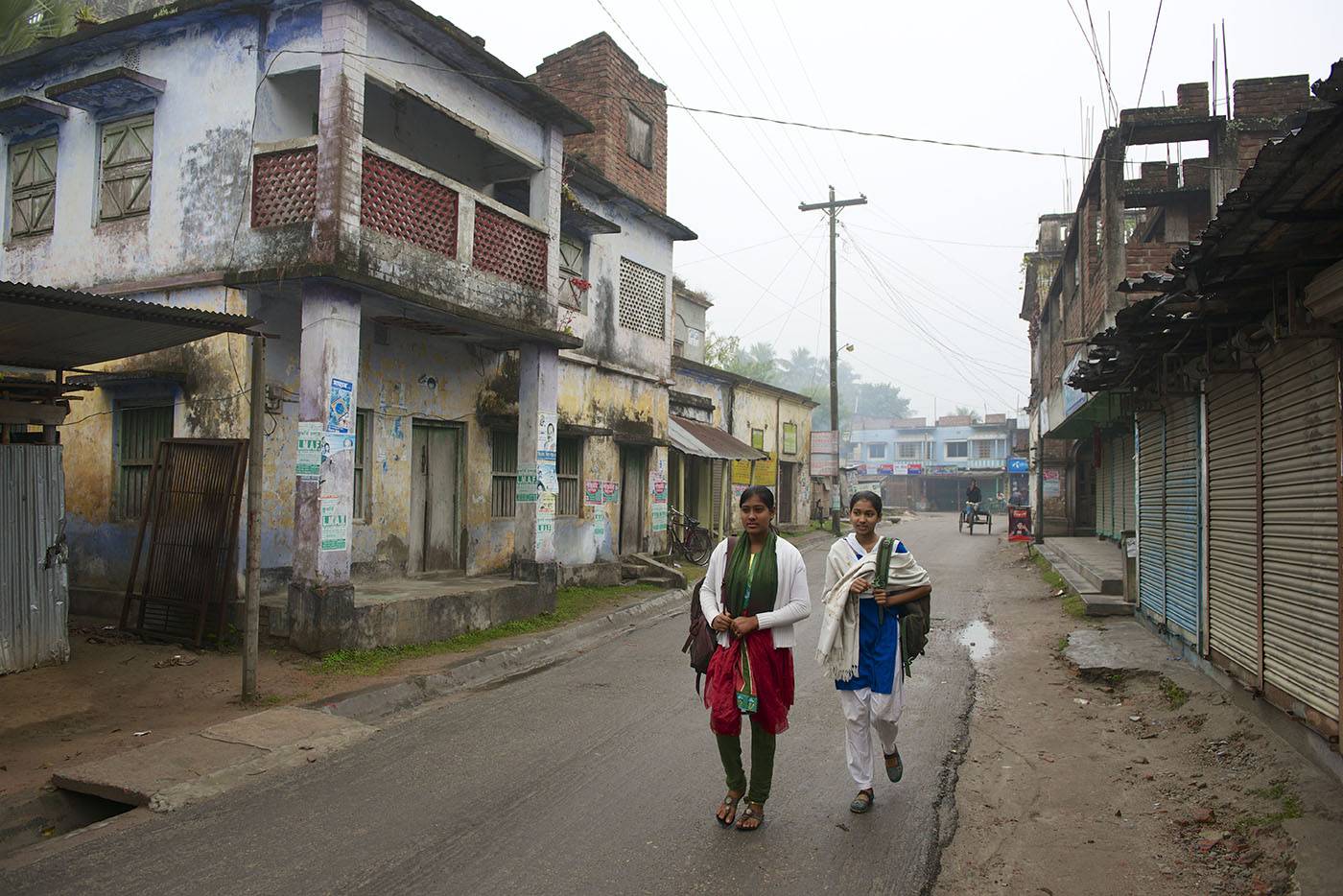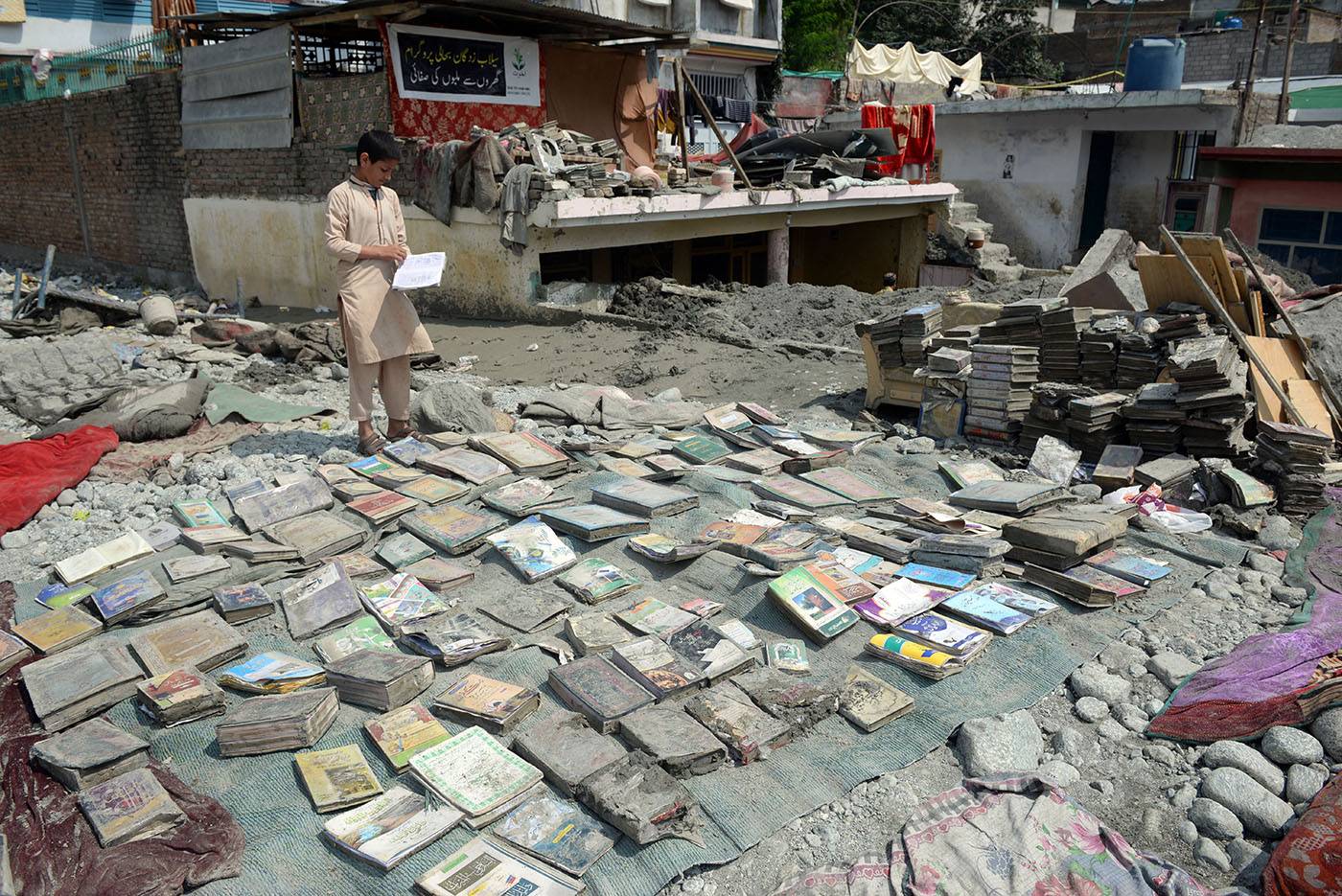EdTech for climate resilience
BRIDGING THE GLOBAL EVIDENCE GAP

Fast facts
- The challenge
- Our role
- Activities
Climate emergencies such as heatwaves, cyclones, storms, floods, and droughts are worsening the global learning crisis. In 2024, over 242 million students faced school disruptions due to climate-related events. Education systems must become more resilient and inclusive to withstand these shocks.
To support learning continuity, it is crucial for education systems to be resilient and inclusive in the face of crises. At the same time, the role of technology in maintaining education during such disruptions is still underexplored, highlighting the need for new evidence.
EdTech for climate resilience looks at the use of technology to increase education system resilience during climate disruptions in low- and middle-income countries is a nascent area of research: there is not yet a critical mass of evidence to guide decision-makers, this is where EdTech Hub comes in, to help bridge the evidence gap.
EdTech Hub has contributed evidence to address gaps related to climate-related events, and our current work includes:
- Producing a practical brief with recommendations, building on the Hub’s previous research around the feasibility of using technology to support learning continuity in response to the Pakistan floods in 2022.
Primary implementation research on the use of technology in climate-impacted contexts. Findings will be shared through technical working papers. Studies include:
Bangladesh: Socio-emotional learning for caregivers and parents.
Kenya: Technology’s role in supporting caregivers in education.
Tanzania: A school-based flood early warning system.
Explore more
- Sub-Saharan Africa
- Kenya
- Tanzania
- South and Southeast Asia
- Bangladesh
- Pakistan
- Global
- Socio-emotional learning (SEL)
- Supporting learning continuity in flood-affected regions
- Technology for climate resilience
- Supporting caregivers and parents in education
You can explore all publications on EdTech for Climate Resilience in the evidence library, or view our curated list below, organised by topic.
Curious about our work? Explore our collection of frequently asked questions, complete with quick and insightful answers. Go to our Q&A section.
About EdTech for climate resilience ➜
As climate-related disasters become more frequent and severe, education systems are under growing pressure. While technology is often used to address the broader effects of climate emergencies, there is little evidence on how it can directly support learning continuity and preparedness. This gap makes it harder to integrate EdTech into crisis response efforts. EdTech Hub is working to change that by exploring how technology solutions, initially developed for other emergencies or low- and middle-income countries more generally, can be adapted to keep students learning in climate-affected communities. Our work with partners will include designing and testing technology-enabled preparedness solutions within schools and ministries of education.
Join us in bridging the evidence gap. Read on for resources, research, and tools to support your work.
EdTech Hub's work ➜
There is still much to learn about how technology can support learning when climate emergencies disrupt education, especially in low- and middle-income countries. Yet Ministries of Education globally are demanding evidence-based solutions to inform their policies and programming.
With climate-related emergencies on the rise, building a stronger research foundation is critical to guiding effective responses, informing climate emergency preparedness and supporting learning continuity is critical.
Our climate resilience work will focus on understanding how EdTech can be adapted to meet the unique needs of climate-affected communities. We will explore practical, evidence-based solutions to strengthen education systems in times of crisis. This includes improving education in emergencies, advancing climate-smart infrastructure, supporting teachers, and engaging communities. By generating clear, actionable insights, we aim to help decision-makers integrate technology into education responses, making learning more resilient and inclusive.



2023
Research from EdTech Hub explores the education response to climate emergencies following the floods, and highlights the importance of utilising existing, more accessible technologies to ensure learning continuity.
December, 2022
To what extent and when is it feasible to use technology to support learning during climate emergencies in Pakistan? This blog explores some preliminary insights from an EdTech Hub report.
July, 2024
This blog explores how Covid-19, natural disasters, and other disruptions have impacted education in Pakistan—and how we can build back better...
Resources by topic
Supporting learning continuity in flood-affected regions
2022 │ Report
Learning continuity in response to climate emergencies: Preliminary insights on supporting learning continuity following the 2022 Pakistan floods
March, 2023 │ Report
Learning continuity in response to climate emergencies: Pakistan’s 2022 floods
Refugee education
June, 2020 │ RER
Refugee Education: A Rapid Evidence Review
June, 2020 │ Report
Using EdTech in Settings of Fragility, Conflict and Violence: A Curated Resource List
Leveraging low-tech devices and tech
August, 2024 │ Review
EdTech for Out-of-School Children and Youth: A Rapid Evidence Review for the Southeast Asian Region
March, 2021 │ Report
Low-Tech Devices and Connectivity for Learning in Lebanon
Guidance and minimum standards
February, 2024 │ Review
EdTech for Education in Emergencies: A review of existing guidance and minimum standards
February, 2024 │ Review
EdTech for Education in Emergencies: A Rapid Evidence Review
Questions we get asked about EdTech for climate resilience ➜
Climate emergencies such as floods, droughts, and storms disrupt schooling for millions of children each year. Damaged infrastructure, unsafe conditions, and displacement make it harder for students to continue learning.
We believe so, yes, but there is limited evidence on what works best. Technology has been used to support learning in other emergencies, like Covid-19, but more research is needed to adapt these solutions for climate-affected communities. That’s where EdTech Hub comes in, to help fill the evidence gaps, see all our evidence on EdTech for Climate Resilience.
Proud to partner with global experts



¹Some work may appear in multiple sections and won’t always be tagged by region or country. This is because many projects span different contexts and focus areas. We’ve curated this list to help support a variety of search needs.

